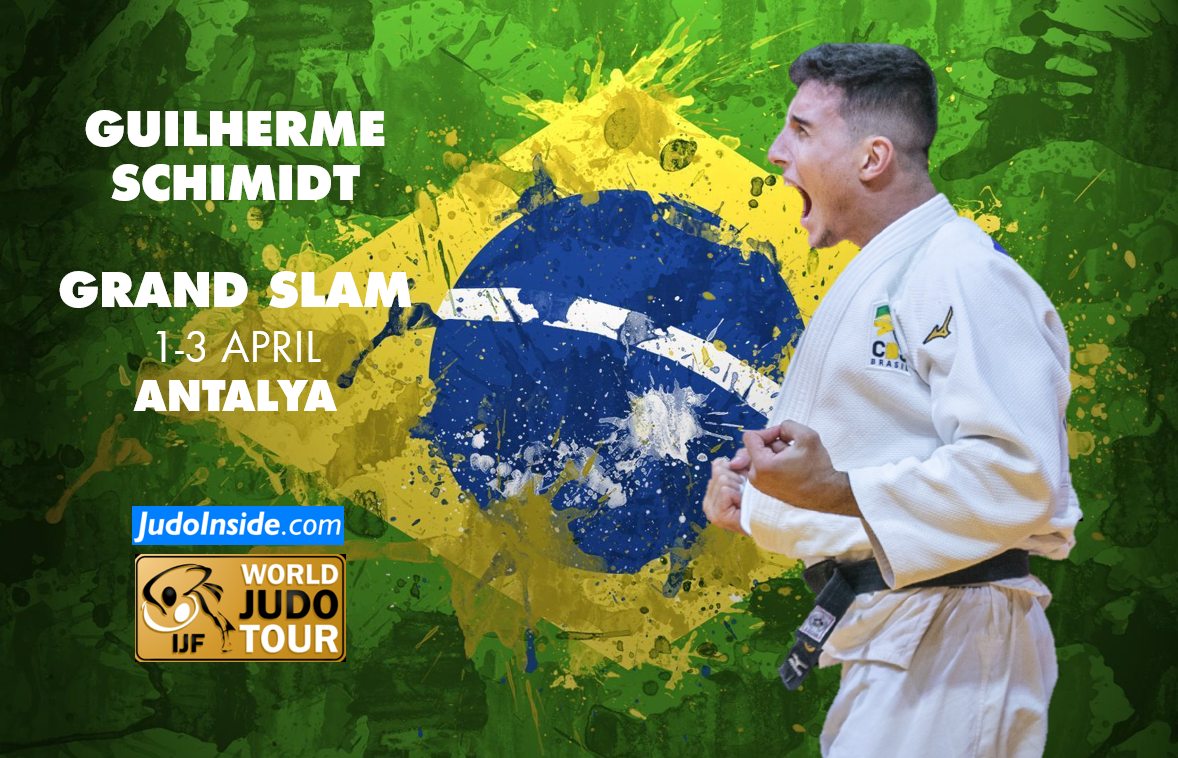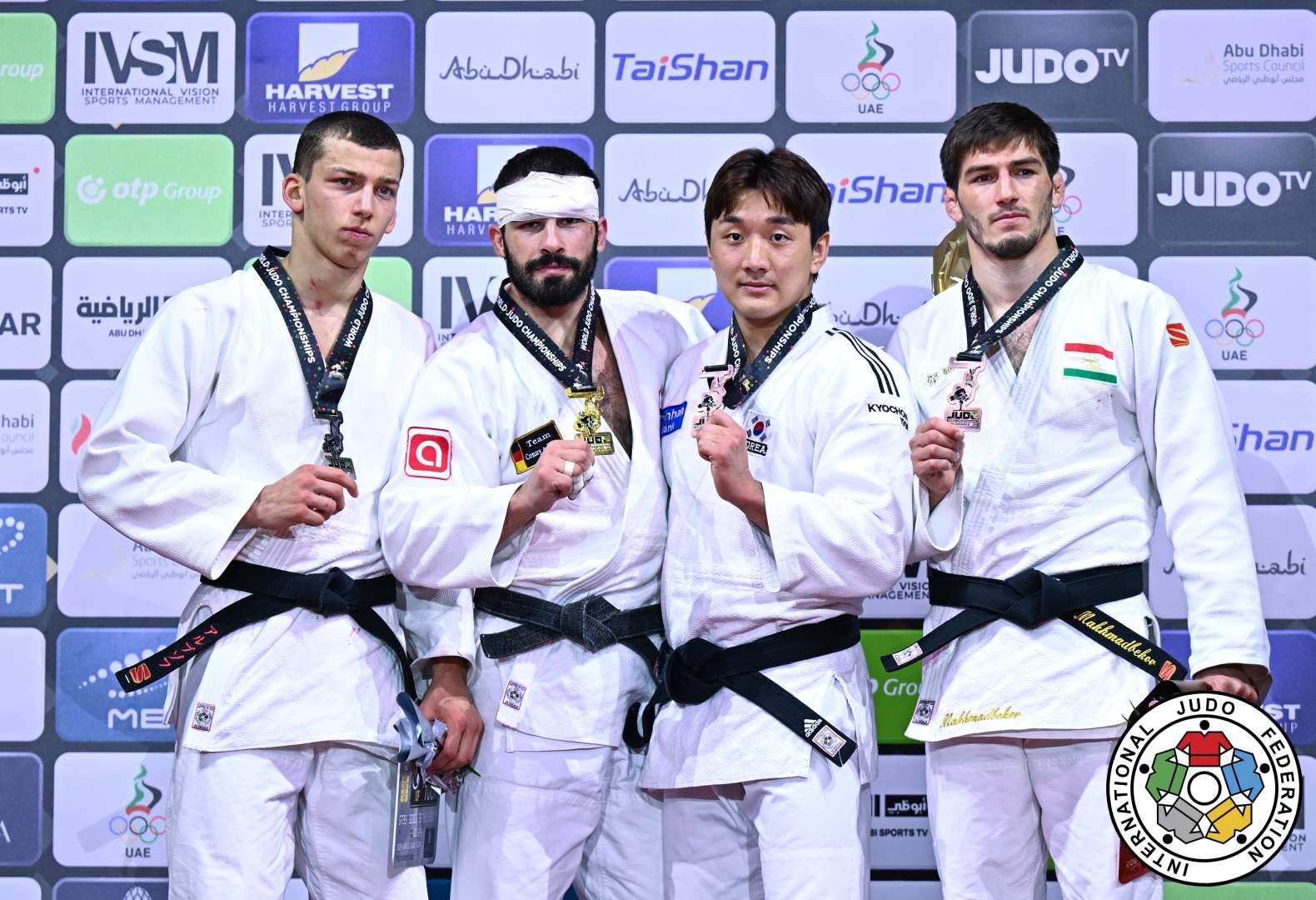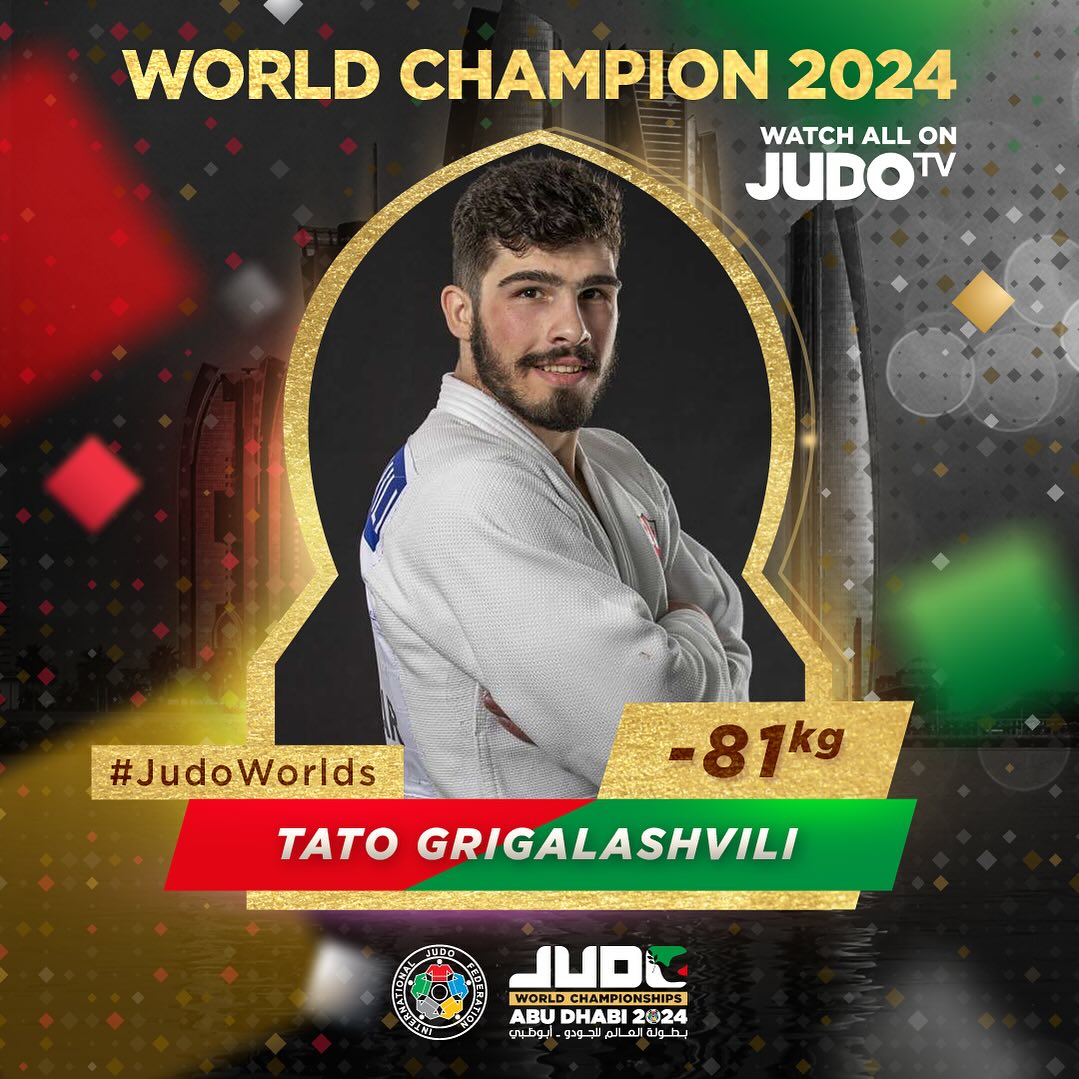World Military Champion Guilherme Schimidt surprises the elite in U81kg

 2 Apr 2022 19:45
2 Apr 2022 19:45
 IJF Media team by Nicolas Messner and JudoInside
IJF Media team by Nicolas Messner and JudoInside
 JudoInside.com - Hans van Essen / judo news, results and photos
JudoInside.com - Hans van Essen / judo news, results and photos
What an impressive field at the Grand Slam in Antalya in the U81kg category. With 60 participants this division once again kept all its promises. With a certain number of big names present such as the illustrious Matthias Casse (BEL), reigning world champion and Saeid Mollaei (MGL), Olympic silver medallist, we knew that everything was possible. In the final, it was eventually Guilherme Schimidt (BRA) and Vedat Albayrak (TUR) who faced off after all the big favourites had to bow out.
This was the case for Mollaei in the first round against Germany’s Dominic Ressel who was in great shape and Casse against the same German opponent in the repechage.
The quarterfinal battle between Casse and Schimidt at the 2022 Antalya Grand Slam was an exciting one with both players trading big throws. Casse scored with ouchi-gari with just 23 seconds left in the match. Amazingly, Schimidt was able to even up the scores by landing a kosoto with just five seconds left in the match. In Golden Score, Casse threw again with an ouchi that was initially given a waza-ari but cancelled. Then Schimidt threw with an ura-nage that was given waza-ari but cancelled. The match was decided when Casse as given his third penalty right after he had just launched an attack on Schimidt, which is truly surprising.
IJF referee Iljana Marzok reacted: "The referee showed the wrong sign. Casse was a bit unlucky. He attempted a kansetsu-waza when Schimidt was already back in a standing position."
Article 18.1.2 - Shido for an Illegal Move: If both athletes are in a tachi-shisei (standing position) and one or both apply kansetsu-waza (including ude gaeshi ((arm reverse)) and similar) or shime-waza (both technical situations alone or combined with a judo throwing technique), Mate! and shido should be announced. However, if the action is dangerous or can injure the opponent, it will be hansoku-make. (SOR, p. 144)
For Turkey, the presence of Albayrak in the final was important because it crowns a perfect organisation of the event so far. A guaranteed medal to motivate the troops can only do good, but he needed to be aware of the Brazilian competitor who has proven that this could be his day. After two minutes and thirty seconds, Albayrak took the lead with a waza-ari, under the hurrahs of the young public. Everything seemed to be alright for the Turkish champion, but after a confused action, he seemed to forget to keep his arm close to his body; a mistake that Guilherme Schimidt did not let pass. He caught that lonely arm and applied an ude-garami for ippon to take a brilliant victory.
Schimidt: “I tried to stay calm and focused, especially after he scored a waza ari. I had to work harder to get that gold medal. I knew that he was superior in Tachi Waza but I stayed focused if I had an opportunity in Ne Waza. I’m better in that part and that is what I did”.
Dominic Ressel can be satisfied with his day because he defeated the best. However, a bronze medal would have concluded his competition perfectly. Facing him was the Uzbek Sharofiddin Boltaboev (UZB) who we know is a formidable medal hunter. In the end it was Boltaboev who won with a superb o-uchi-gari for ippon that should be studied in every judo club, as Boltaboev had everything under control to throw: the timing, the balance, the gripping. All ingredients were there and the Uzbek competitor made something really good out of those.
For the second bronze medal awarded in this category, Abdul Malik Umayev (BEL) was opposed by Hievorh Manukian (UKR), both of whom showed great judo throughout the day. The first dangerous action came from Manukian with a low o-soto-gari but for no score. The second action came from the Belgian judoka, with a speedy seoi-nage for waza-ari. With less than one minute on the clock, Umayev scored his own waza-ari to have a chance to reach golden score, which was the case. With only 16 seconds of extra-time gone, the Belgian produced another nice seoi-nage to score again and win his first medal at that level.
 like
like
 share
share

| Result | City | Date |
|---|---|---|
| 1 | Abu Dhabi | 21 May |
| 1 | Zagreb | 26 Apr |
| 3 | Belgrade | 2023 |
| 2 | Montpellier | 2023 |
| 3 | Budapest | 2023 |
| Result | City | Date |
|---|---|---|
| 1 | Tashkent | 2 Mar |
| 1 | Paris | 3 Feb |
| 1 | Budapest | 2023 |
| 2 | Tokyo | 2023 |
| 5 | Montpellier | 2023 |
















































